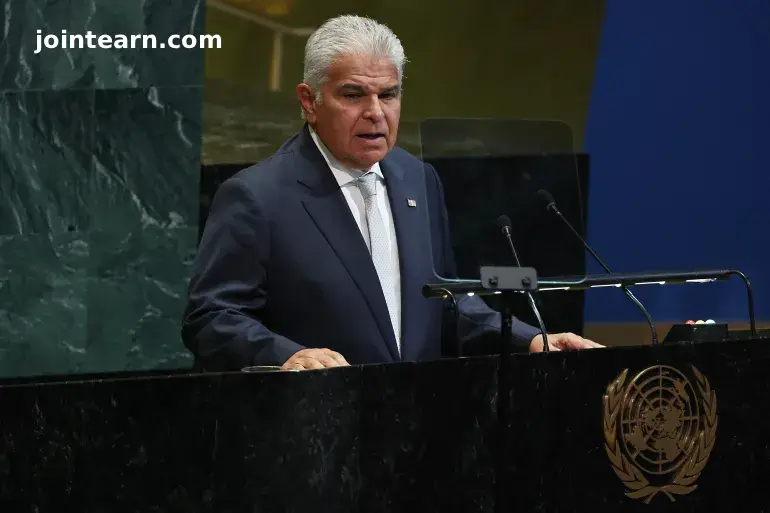
Panama’s President Jose Raul Mulino has alleged that officials at the United States Embassy threatened to revoke visas for Panamanian government officials in response to the country’s ties with China. Speaking at his weekly press conference, Mulino criticized such actions as inconsistent with the “good relationship” he hopes to maintain with the United States.
Allegations of U.S. Visa Pressure
Without providing specific evidence or naming embassy officials, Mulino stated that threats to withdraw visas have been used as leverage in the ongoing U.S.-China geopolitical competition. “They’re free to give and take a visa to anyone they want, but not threatening that, ‘If you don’t do something, I’ll take the visa,’” he said on Thursday.
The U.S. Embassy in Panama has not issued a comment, and the Trump administration generally refrains from addressing individual visa cases. However, a September statement from the U.S. Department of State emphasized efforts to counter Chinese influence in Central America, including restricting visas for individuals perceived to maintain ties with the Chinese Communist Party or act against democratic interests in the region.
Regional Context and Precedents
Panama is not alone in facing U.S. visa pressures amid rising geopolitical tensions with China. Earlier in 2025:
- Former Costa Rican President and Nobel laureate Oscar Arias said his U.S. visa had been canceled in April.
- Vanessa Castro, Vice President of Costa Rica’s Congress, reported in July that her visa was revoked due to alleged contacts with the Chinese Communist Party.
- The Trump administration also revoked visas of six foreigners accused of making light of the assassination of conservative activist Charlie Kirk.
These examples highlight a broader U.S. policy aimed at limiting Chinese influence in Central America, a region of increasing strategic importance.
The Panama Canal and U.S.-China Tensions
The Panama Canal, a vital global shipping route, makes Panama particularly sensitive to U.S.-China relations. In February, U.S. Secretary of State Marco Rubio urged Panama to reduce Chinese influence over canal operations during his first foreign visit as the top U.S. diplomat.
While Panama has denied any undue Chinese influence, it has complied with U.S. pressure to sell a Hong Kong-based company’s canal port concessions to a consortium. Mulino has consistently maintained that the canal’s neutrality will be preserved.
“The underlying issue — the conflict between the U.S. and China — doesn’t involve Panama,” he said. “Threatening visas over it is not coherent with the good relationship we seek to maintain with the United States.”
Implications for Panama-U.S. Relations
Mulino’s remarks underscore growing tensions between Panama and the United States, reflecting wider regional anxieties over China’s expanding presence in Latin America. The use of visa revocations as a diplomatic tool raises questions about U.S. influence and its approach to managing geopolitical rivalries in strategic regions.
Panama continues to navigate a delicate balance, seeking to maintain good relations with the U.S. while safeguarding its sovereignty and neutrality over critical national assets like the canal.


Leave a Reply